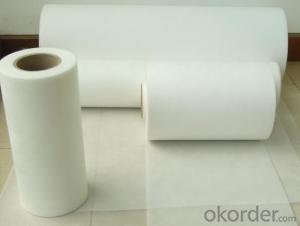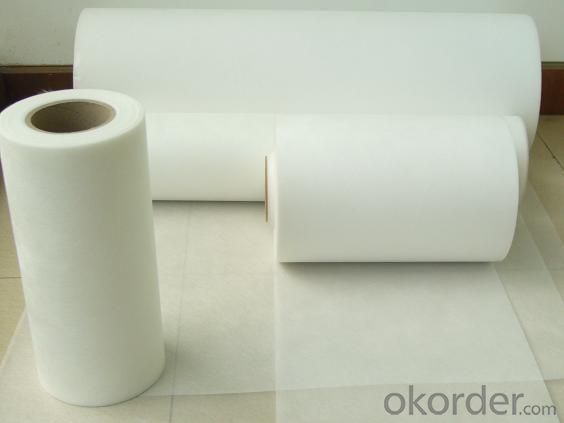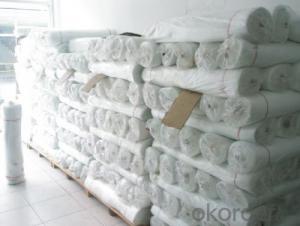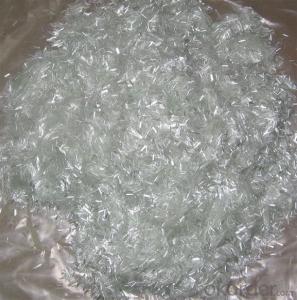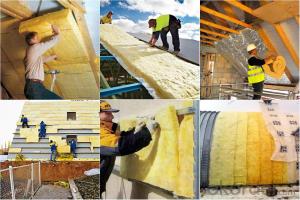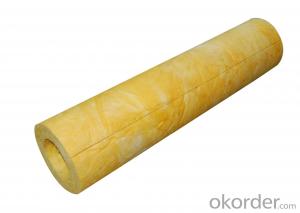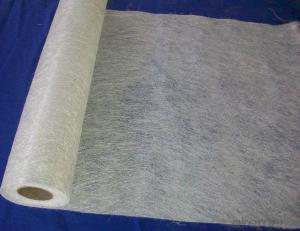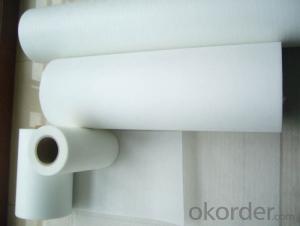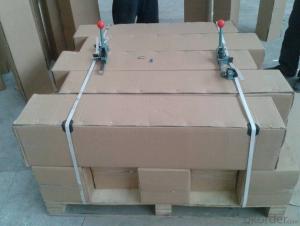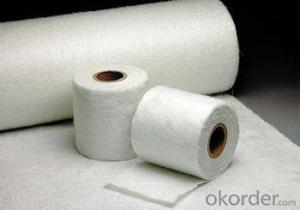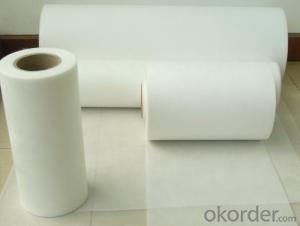Fiberglass Mat Tissue for FRP Usage - e-glass Fiber Surface Tissue Mat
- Loading Port:
- Qingdao
- Payment Terms:
- TT or LC
- Min Order Qty:
- 144000 m²
- Supply Capability:
- 1440000 m²/month
OKorder Service Pledge
OKorder Financial Service
You Might Also Like
Surfacing Tissue mainly used in the surface layers of FRP products. It features even Fiber distribution, soft feel, level and smooth fiber surface, less glue content, quick resin soak and good pattern fitness. It can improve the product surface property on corrosion resistance, compressive strength, seepage resistance, and longer service life. It is also suitable for spraying; pattern pressing and other FRP pattern technology.
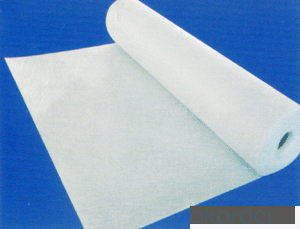
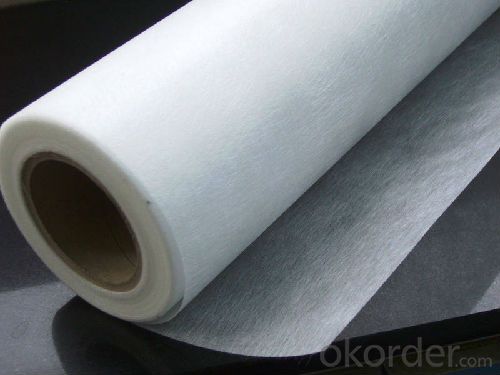
Specifications:
Product Features:
Fast breakdown in styrene
Fiber dispersed evenly
Low binder content
Superior acid corrosion resistance
Item | Unit | Specification |
Area Weight | g/m2 | 30+/-3 |
Binder Content | % | 6-9 |
Tensile Strength MD | N/125px | ≥35 |
Soaking time | S | ≤10 |
Moisture content | % | ≤0.5 |
Width length
| mm
| 1270
|
Roll Diameter
| m | 300
|
Paper Core Internal Dia | mm | 76 |
Special specification can be produce according to customer requirements.
Product packaging:
Each Surface Tissue is wound onto a paper tube which has an inside diameter of 76mm and the mat roll has a diameter of 330mm. The mat roll is wrapped up with plastic film,and then packed in a cardboard box or wrapped up with kraft paper. The rolls can be vertically or horizontally placed. For transportation, the rolls can be loaded into a cantainer directly or on pallets.
Product storage:
Unless otherwise specified, Chopped Strand Mat should be stored in a dry, cool and rain-proof area. It is recommended that the room temperature and humidity should be always maintained at 15℃~35℃ and 50%~75% respectively.
- Q: Can fiberglass mat tissue be used for soundproofing?
- Indeed, soundproofing can be achieved with the utilization of fiberglass mat tissue. Renowned for its remarkable sound absorption capabilities, fiberglass proves to be an exceptional choice. Whether employed as a mat or tissue, it effectively diminishes noise transmission by absorbing and attenuating sound waves. The porous composition of fiberglass enables it to capture and disperse sound energy, rendering it a perfect material for soundproofing purposes. Furthermore, fiberglass possesses the advantages of being lightweight, flexible, and straightforward to install, thus making it an exceedingly convenient option for soundproofing endeavors.
- Q: Can fiberglass mat tissue be used for reinforcing fiberglass roofs?
- Yes, fiberglass mat tissue can be used for reinforcing fiberglass roofs. It is commonly used in the construction industry as a reinforcing material for various applications, including roofs.
- Q: What is the typical thickness range of fiberglass mat tissue?
- The typical thickness range of fiberglass mat tissue is between 0.3 to 1.5 millimeters.
- Q: Can fiberglass mat tissue be used for insulation purposes?
- Yes, fiberglass mat tissue can be used for insulation purposes. Fiberglass mat tissue is a lightweight material made from fine strands of glass fibers that are bonded together with a binder. It is commonly used as a reinforcement material in the construction industry, but it can also be used as insulation. Fiberglass mat tissue has excellent thermal insulation properties, making it an effective choice for insulating buildings and other structures. It helps to prevent heat transfer, keeping the interior of a building warm in cold weather and cool in hot weather. Additionally, it is non-combustible, which makes it a safe option for insulation. The flexibility and ease of installation of fiberglass mat tissue make it a popular choice for insulating walls, roofs, and floors. It can be easily cut and shaped to fit different spaces, making it versatile for various construction projects. It is also resistant to moisture, mold, and mildew, ensuring long-lasting insulation performance. In summary, fiberglass mat tissue can indeed be used for insulation purposes. Its thermal insulation properties, non-combustible nature, and ease of installation make it a suitable choice for insulating buildings and improving energy efficiency.
- Q: What is the specific gravity of fiberglass mat tissue?
- The specific gravity of fiberglass mat tissue may differ based on its specific composition and how it is manufactured. On the whole, however, fiberglass mat tissue generally falls within a specific gravity range of 1.8 to 2.2. Specific gravity is a measurement that compares the density of a substance to a reference substance, typically water. When a substance has a specific gravity of 1.0, it means its density is equal to that of water. A specific gravity greater than 1.0 indicates a higher density. Consequently, the specific gravity of fiberglass mat tissue implies that it is denser than water.
- Q: Can fiberglass mat tissue be used for insulation in commercial buildings?
- Yes, fiberglass mat tissue can be used for insulation in commercial buildings. It is a common and effective insulation material that provides thermal insulation, soundproofing, and fire resistance properties. It is often used in commercial buildings to improve energy efficiency and create a comfortable indoor environment.
- Q: Does fiberglass mat tissue provide good fire protection?
- No, fiberglass mat tissue does not provide good fire protection.
- Q: Can fiberglass mat tissue be used for composite tooling?
- Yes, fiberglass mat tissue can be used for composite tooling. Fiberglass mat tissue is a lightweight material made of randomly oriented fiberglass strands bonded together with a resin binder. It is commonly used as a reinforcement material in composite applications such as boat building, automotive parts, and aerospace structures. When used for composite tooling, fiberglass mat tissue can provide strength and stiffness to the tooling structure. It can be layered and impregnated with resin to form a solid and durable composite tool. The resin binder in the mat tissue helps to hold the fibers together and provide resistance against wear and tear. Fiberglass mat tissue is also flexible and can be easily molded into complex shapes, making it suitable for creating tooling with intricate designs. It can be easily cut and shaped to match the desired tooling dimensions. However, it is important to note that fiberglass mat tissue alone may not be sufficient for all types of tooling applications. Depending on the specific requirements of the tool, additional reinforcement materials such as carbon fiber or Kevlar may need to be added to enhance the strength and durability. Overall, fiberglass mat tissue can be a cost-effective and practical choice for composite tooling, providing strength, flexibility, and ease of use.
- Q: What are the different manufacturing processes for fiberglass mat tissue?
- Various manufacturing processes exist for fiberglass mat tissue, each aiming to create a distinct mat type with unique characteristics. One prevalent method is the wet-laid process. Initially, glass fibers are chopped into small fragments and dispersed in a water-based slurry. This slurry is then spread onto a moving screen or belt, allowing the water to drain off and generating a mat composed of randomly oriented fibers. Subsequently, the mat is dried and further treated to achieve the desired thickness and density. Another technique is the dry-laid process. Here, glass fibers are first transformed into a loose, fluffy mat using either air or mechanical means. Subsequently, the loose fibers are bound together using a binder material, such as resin or latex, which is sprayed onto the fibers. The binder solidifies, resulting in a cohesive mat with controlled thickness and density. A third process is the stitch-bonded process. In this procedure, individual glass fibers are mechanically stitched together using a series of needles. These needles pierce the fibers and interlock them, producing a bonded fabric. This approach enables the production of mats with high strength and dimensional stability. Lastly, the spunbond process involves extruding molten glass through fine spinnerets to create continuous filaments. These filaments are then accumulated onto a moving belt or screen, where they are bonded together using either heat or a binder. This method generates mats with uniform fiber distribution and high strength. In summary, the selection of a manufacturing process for fiberglass mat tissue depends on the desired properties of the final product, including strength, thickness, density, and dimensional stability. Each process possesses its own advantages and disadvantages, and manufacturers will choose the most suitable method based on their specific requirements.
- Q: Can fiberglass mat tissue be used for insulating metal roofs?
- Yes, fiberglass mat tissue can be used for insulating metal roofs. It provides a layer of insulation that helps to regulate temperature and minimize heat transfer, making it suitable for insulating metal roofs.
Send your message to us
Fiberglass Mat Tissue for FRP Usage - e-glass Fiber Surface Tissue Mat
- Loading Port:
- Qingdao
- Payment Terms:
- TT or LC
- Min Order Qty:
- 144000 m²
- Supply Capability:
- 1440000 m²/month
OKorder Service Pledge
OKorder Financial Service
Similar products
Hot products
Hot Searches
Related keywords
